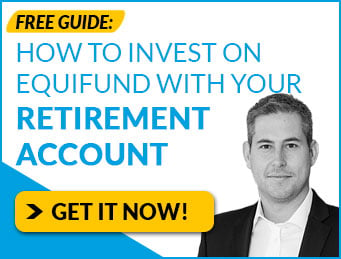As a small-balanced investor with limited resources, here’s the #1 reason why I prefer Private Capital…
It’s the only market where I believe I can potentially generate better returns than the stock market with non-correlated risk (called “alpha”).
Here’s why…
I have very little chance of “beating” the average return in the Public Capital Markets over the long term.
Not because I believe it can’t be done…
I’m just aware enough to know that I have no chance against the AI-powered hedge funds, run by an army of PhDs, with billions of dollars under management.
But once I discovered the world of Private Capital, I saw a real opportunity for someone like me – a regular retail investor – to build wealth the way billionaires do.
The question is, can Private Capital help you reach your financial goals faster, easier, or better than the other options available to you?
Maybe it is, maybe it’s not. Only you can decide that for yourself. But in today’s issue, we’re going to start the conversation by focusing on the first part of that sentence –– what are your financial goals?
-Jake Hoffberg
P.S. As a reminder, securities sold under Reg CF, Reg A, and Reg D are often considered high risk and speculative in nature. Please do not invest funds you cannot afford to lose or otherwise need immediate access to.
Beating an unwinnable game
For fans of the hit series Star Trek, you might recall the infamous Kobayashi Maru Simulation.
It’s an unwinnable game designed by Starfleet, to test ethical decision-making and leadership skills in a high stakes environment.
The situation is as follows…
The person playing the game (the “Player”) is tasked with a mission: Rescue a civilian transport ship – the Kobayashi Maru – that’s currently disabled inside a Neutral Zone.
If the Player enters the Neutral Zone, it will cause a border incident with the warrior race of Klingons.
With this in mind, the Player is left with two choices…
- Attempt a rescue mission that will violate their treaty, endanger their own lives, and possibly start a full scale war between the Starfleet and the Klingons…
- Do nothing, and everyone onboard the Kobayashi Maru dies.
If the Player chooses Option 1, the simulation is “rigged against them” so they always lose.
If the Player chooses Option 2, well, that hardly seems like much of a choice.
But James T. Kirk doesn’t like “no-win” scenarios… so he chooses Option 3 – reprogram the game so it’s possible to win!
If you want to win the game of money and achieve your financial goals, you can either accept the choices the game you’re playing gives you…
Or you can create your own choices, by changing the game you’re playing.
Could you beat Wall Street at its own game by actively trading stocks and options? Maybe. But eventually, “the house” always wins.
Why? Because that’s how those games are designed to work!
And unless you plan on becoming a Public Capital Insider, and competing against the “Masters of the Universe”…
Maybe the better answer is to play a different game where the “little guy” has better odds?
But before we go any further, let’s define what a game is.
The 6 Elements of Game Design
A game is a form of art in which Players gather Information and make Decisions in order to Manage Resources… through the use of Game Tokens… in the pursuit of a Goal… in the face of Opposition.
All six of these elements must be present in order for the game to function properly.
With this in mind, the most important element of the game is the Goal.
If the Player doesn’t have a Goal, any Decisions they make are meaningless.
Take the Kobayashi Maru Simulation, as an example. If there is no goal then it doesn’t matter what choice you pick.
For it to matter, for the game to be meaningful, you need something to strive toward. You need a Goal.
And this lack of clearly defined Goals is the reason why people struggle with money and investing!
I’ve asked several Equifund members why they want to invest in private market deals, and by far the most common response is some version of…
“I want to make good returns and not lose money.”
This is the definition of an unwinnable game.
Why? Because it’s an emotional statement, not a financial goal.
Remember, “Outsiders” make emotional decisions based on limited information, hearsay, and the fear of missing out…
“Insiders” seek to make educated decisions based on publicly available information, lived experiences, and their own, personal financial goals.
This means the #1 thing you MUST do before even playing the game, is deciding what outcomes you’re solving for…
And then picking a strategy that helps you achieve those outcomes, within the desired time frame.
As a general consideration, financial goals fit into one of four categories.
- Retire Liabilities: Remember that your net worth is your assets minus liabilities. This means one of the easiest ways to increase your net worth is to focus on retiring your high-interest debt first.
- Acquire Assets: A key secret to building generational wealth is to acquire appreciating assets that generate cash flow while also growing in value (vs depreciating assets that consume cash flow and lose value).
- Living Rich: You don’t have to be “rich” to live a rich life. Don’t forget to take care of your health, build (and maintain) meaningful relationships, spend more time with family, and share wonderful food and vacation experiences.
- Building Wealth: When you die, you can’t take it with you. But you can use the wealth you’ve built to take care of the people – and causes – you care about once you’re gone.
While each one of these goals has different strategies, tactics, and tricks…
Each goal can be turned into a “Game” that you can learn how to win, and hopefully, have fun playing for the rest of your life.
Until next time,
-Jake Hoffberg





